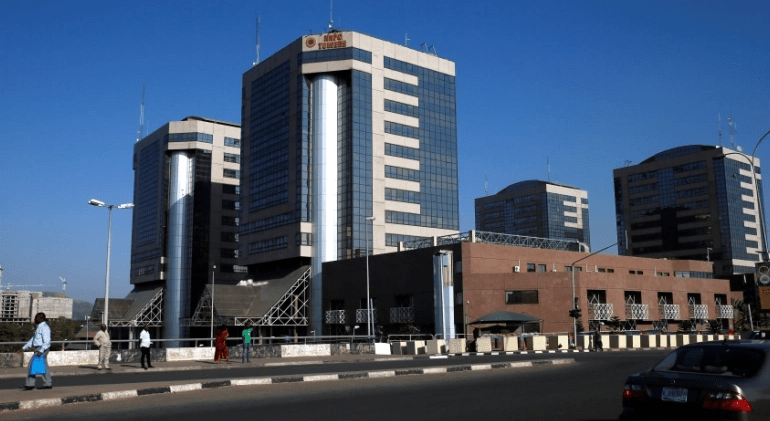Raheem Akingbolu
The stage appears set for the long-awaited constitutional review and reconciliation of identified gaps in the Revenue Mobilisation Allocation and Fiscal Commission (RMAFC) act as the North East Civil Society Network (NECSN), presented a memorandum to the Senate Committee on Constitutional Review, requesting major amendments to the 1999 constitution.
According to the copy of memorandum, cited by our correspondent, the lacuna in the current RMAFC act was central to the group’s demand and it was premised on the fact that the reform would strengthen the commission’s ability to monitor revenue and ensure accurate and timely remittances to the Federation account. The group also believes that the amendment will improve transparency and accountability in Nigeria’s fiscal operations.NECSN, a civil society organisation, dedicated to promoting good governance, peace, and development, reiterated in its memorandum that the bill, which is currently awaiting passage seeks to empower the commission to recommend the removal of executives in revenue-generating agencies that default on their constitutional mandates.
The memorandum, submitted during the Committee’s sitting on July 4th and 5th, 2025, focuses on two major areas- fiscal reform and electoral reform and pointed out their relevance to strengthening Nigeria’s democratic institutions as well as ensuring equitable revenue distribution.
At the centre of NECSN’s proposal is a comprehensive reform of the RMAFC. The network is calling for the commission to be granted full operational autonomy as a revenue oversight and fiscal intelligence body, accountable only to the National Assembly.
To this end, the organisation said that addressing these issues is vital to strengthening Nigeria’s fiscal federalism, enhancing transparency, and ensuring sustainable national development.
It was also stated that under the current system, RMAFC lacks the enforcement power on revenue monitoring. Though it is constitutionally empowered to monitor and advise, NECSN posited that the commission currently lacks explicit legal authority to enforce compliance among revenue-generating agencies and MDAs.
NECSN has recommended granting the commission enforcement powers to summon, audit, sanction, and prosecute revenue-generating agencies and defaulters. It advocates a real-time data integration system with agencies like FIRS, NNPCL, Customs, and NUPRC to improve transparency and curb leakages. Additionally, the memorandum called for statutory deadlines for reviewing and implementing revenue allocation formulas, with automatic effect if the executive and legislature fail to act within the stipulated time frame.
To ensure stronger enforcement, NECSN proposes the establishment of a Revenue Intelligence and Enforcement Unit within RMAFC with legal authority to investigate, impose penalties, and prosecute offenders. A framework for revenue forecasting and fiscal performance evaluation is also recommended.
According to the memorandum, the proposed reforms will “ensure transparency, accountability, and efficiency in revenue mobilisation and allocation, curb systemic leakages and revenue evasion, guarantee fiscal federalism, empower RMAFC to lead the drive toward non-oil revenue growth and economic diversification, and improve data-driven decision-making.”
The group further emphasised the need for an autonomous RMAFC with enforcement powers, including the ability to summon revenue-generating agencies, conduct audits, and sanction defaulters.
“This will block leakages and ensure accountability in revenue management,” NECSN stated.
The group therefore calls for the creation of a National Fiscal Coordination Council, comprising key federal and state revenue agencies, to foster intergovernmental collaboration on a unified revenue strategy. It also urged the amendment of funding provisions to give RMAFC first-line charge from the Federation Account, safeguarding its independence. The memorandum further proposes expanding the constitutional definition of revenue to include digital earnings, e-commerce, carbon taxes, and climate finance instruments.
During the dialogue on the amendment bill recently, many stakeholders hailed the development and urged the national assembly to act speedily in passing the bill into law. For instance, the (GONET) and the Centre for Anti-Corruption and Open Leadership (CACOL), two organisations that have consistently championed the amendment of the RMAFC act, commended the Senate for passing the Bill for an amendment of the act and sought the accelerated passage of Amendment Bill.
GONET, in a communique signed by its chairman, Ambassador Ibrahim Yusuf and secretary, Dr Benjamin Maina at the end of a one-day dialogue session with the theme, “Towards Nigeria’s Effective Fiscal Management: Issues, Prospects and Constraints”, observed that RMAFC is a critical body in Nigeria’s governance structure.
It also noted that RMAFC was responsible for monitoring revenue accruals, revenue allocation to the three tiers of government, and fixing remuneration for public officeholders adding however that the commission has been hampered by financial constraints, outdated legal frameworks, and insufficient regulatory powers, significantly reducing its effectiveness.
According to the communique, one of the major challenges faced by the commission is the absence of financial autonomy and weak regulatory framework, which directly hinders the effective and efficient performance of its operations. Over the years, annual budgetary allocations for the financing of its activities have been grossly inadequate to protect its independence and cater for its nationwide field operations.
“The sensitive nature of the commission’s role in Nigeria’s fiscal management requires a large measure of independence, including financial autonomy.
The Centre for Anti-Corruption and Open Leadership (CACOL) asked President Bola Tinubu to sign the bill into law. It said the bill will grant RMAFC enforcement powers in the monitoring of accruals and disbursement of revenue from the Federation Account.
In a statement by its Chairman, Comrade Debo Adeniran, the centre said the bill as passed by the National Assembly seeks to repeal the RMAFC Act, 2004, and replace it with the Revenue Mobilization, Allocation, and Fiscal Commission Bill, 2024 as the Act, last updated over two decades ago, no longer reflects the nation’s evolving economic realities.




